Biosystems and Agricultural Engineering Spring Seminar Series 2022
BAE is pleased to be hosting speakers that represent the diverse and interdisciplinary research interests of the department. Seminars will begin at 8:30 AM on Thursdays and will last approximately 45 minutes, followed by a Q&A for 15 minutes.
BAE is pleased to be hosting speakers that represent the diverse and interdisciplinary research interests of the department. Seminars will begin at 8:30 AM on Thursdays and will last approximately 45 minutes, followed by a Q&A for 15 minutes. Depending on the availability of the speaker, there will also be a 30 minute Q&A for graduate students only.
February 3: Michael Carolan, PhD
Sociological Stories from the Field: Farm to Fork

https://msu.zoom.us/j/98037527553
*Dr. Carolan's seminar will begin at 9:30 AM* Dr. Carolan is Professor of Sociology and Associate Dean for Research and Faculty Development in the College of Liberal Arts at Colorado State University, USA. He is the author or co-editor of numerous books, including the Routledge Handbook of Sustainableand Regenerative Food Systems (2020), The Real Cost of Cheap Food (2018), Society and the Environment (2017), and Cheaponomics (2014). Dr. Carolan will provide an overview of two sociological studies conducted by the author from both ends of the value chain. The principle aims of the seminar are to provide audience members with examples of some of the insights that the social sciences bring to the subjects of food and agriculture.
February 10: Qualla Ketchum
Indigenizing Biosystems & Agricultural Engineering: What, Why & How?
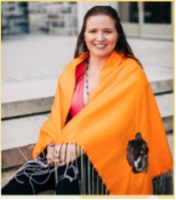
https://msu.zoom.us/j/97773839712
Qualla is a PhD candidate in Engineering Education at Virginia Tech and received her BS and MS degrees in Biosystems & Agricultural Engineering at Oklahoma State University. She is a citizen of the Cherokee Nation and is an educator, researcher, and scholar in indigenizing engineering and Indigenous community practices. Qualla will be discussing the importance of this work, how our field stands to be a leader in thisarea, as well as provide tips, resources, and examples on how to begin to indigenize your research and classrooms.
February 17: Jennifer Hodbod,PhD
Applying resilience thinking in food systems
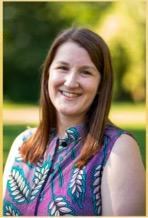
https://msu.zoom.us/j/98375956864
Dr. Hodbod is an Assistant Professor in the Department of Community Sustainability at Michigan State University, where she researches how to make our food systems more equitable and resilient. To integrate these components, she utilizes environmental social scienceand political ecology methods. Dr. Hodbod will outline principles of social-ecological resilience theory and how she has operationalized this within food systems. She will use case studies from grazing and urban food systems to outline her resulting approach to resilience assessment.
March 17: Dienye Tolofari, PhD
Evaluating Process Optimization in Drinking Water Treatment Facilities

https://msu.zoom.us/j/98556560536
Dr. Tolofari is a Water Research Engineer with Great Lakes Water Authority, Detroit, Michigan. She received her M.S. in Environmental Engineering from the University of Florida, and a Ph.D. in Environmental Engineering from Drexe lUniversity. Her research interests are tailored around drinking water quality and public health. Dr. Tolofari will briefly discuss the drinking water treatment facilities operated by Great Lakes Water Authority, and the utilization of its pilot plant facilities to mimic the full scale treatment processes, to test differenttreatment configurations, and to evaluate process optimization, and water treatment processes. This seminar will also highlight some of the on-going research efforts supported by Great Lakes Water Authority.
March 31: Carlos Marino, PhD.
Value Chain Integration to Boost Food Security: An IoT Platform From Farm To Fork
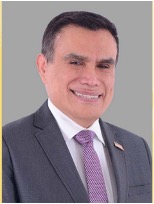
https://msu.zoom.us/j/97526847568
The agricultural industry is highly underdeveloped and requires a digital transformation for food security and reliability. Online platforms can help sell perishable food that might otherwise go to waste, increasing market access and creating $10,651 in additional revenue per producer1. The underlying goals for this seminar are to characterize the inherent complexity of the value chain and how available technology can integrate multi-stakeholders in an IoT (Internet-of-Things) platform. The platform collects and processes agricultural data to produce valuable analytics and visualizations in real-time. The seminar will include a live demo of the AWS IoT platform.
Dr. Marino joined the Axia Institute in January 2021 as a Researcher Leader and is responsible for the development of Axia's digital value chain research. Dr. Marino received his PhD in Industrial and Systems Engineering from Mississippi State University and holds a PE license in the state of California. Prior to joining MSU, Dr. Marino help positions at A.I. Millennium Lab and in the U.S. Air Force Operations Research and Supply Chain A.I. Division.
April 7: Bahar Aliakbarian, PhD
Sustainable and Integrated Food and Pharmaceutical Supply Chain
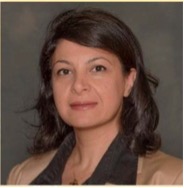
https://msu.zoom.us/j/95727449709
Dr. Aliakbarian is the Director of Research & Development at the Axia Institute, Associate Professor in the MSU Department of Biosystems and Agricultural Engineering, and Adjunct Associate Professor at the School of Packaging at Michigan State University. She completed her Ph.D. degree in Chemical, Process, and Material Engineering inthe School of Innovative Sciences and Technologies at the University of Genoa (Italy) in 2009. Dr. Aliakbarian leads a multidisciplinary team that focuses on the use of engineering solutions to enhance food and pharmaceutical supply chain security and sustainability. During this seminar, she will present how a combination of science, engineering, and supply chain expertise could develop a biorefinery platform tovalorize food and agriculture byproducts.
April 14: Dr. Daniel Morris
Agricultural Applications of Computer Vision and Machine Learning
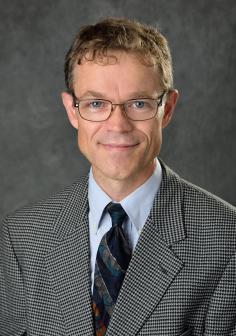
https://msu.zoom.us/j/96355626738
Daniel Morris is an Associate Professor in the Electrical and Computer Engineering Department at MSU. His research leverages deep neural networks to recover scene properties using imaging and scanning sensors such as video and LiDAR. His group has achieved state-of-the-art object detection performance through LiDAR-camera fusion, while his radar-camera fusion has led to full-velocity returns from Doppler radar. Applying similar techniques to plant agriculture, his work includes leaf instance segmentation in cluttered scenes, along with prediction of maize phenotypes from drone-mounted LiDARs. His group developed a novel method to train a neural network to estimate 3D pig posture and gait, and is exploring ways this can lead to improved animal welfare and food production.
April 21: Joanna Zablotsky Kufel, PhD, MPH
Risk Assessment in Food Safety
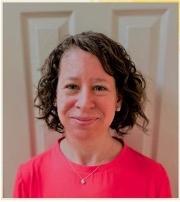
https://msu.zoom.us/j/91434808291
Dr. Zablotsky Kufel received both her Masters in Public Health (MPH) and PhD from the Johns Hopkins Bloomberg School of Public Health. She is the Director of the Risk Assessment and Analytics Staff (RAAS) in the Office of Public Health Science (OPHS) at the United States Department of Agriculture's Food Safety and Inspection Service (USDA-FSIS), which is the public health regulatory agency responsible for ensuring the safety of meat, poultry and processed eggs. RAAS conducts scientific risk assessments and develops new analytic methods for assessing risks of biological and chemical hazards in regulated products, which informs regulatory management options in support of the FSIS food safety mission.



 Print
Print Email
Email



